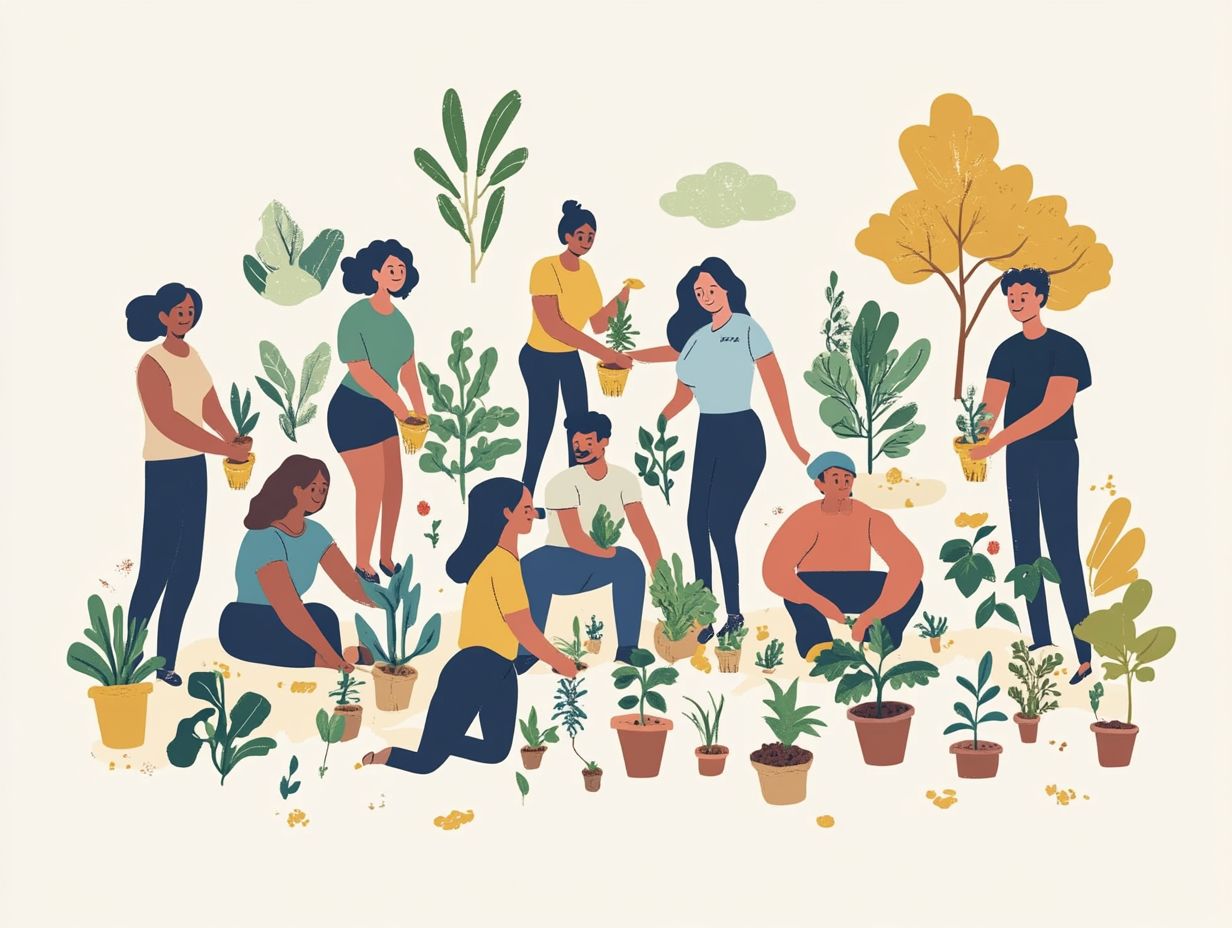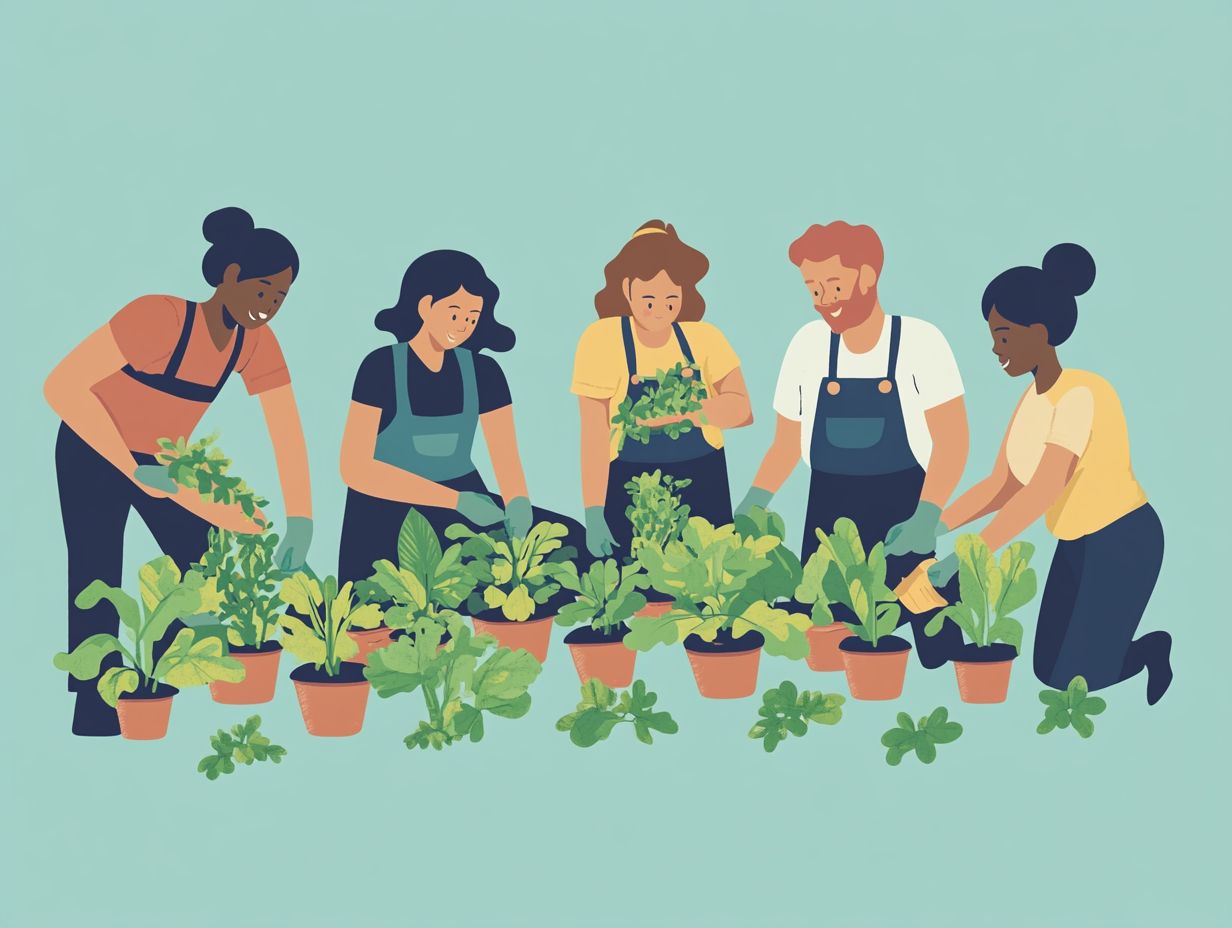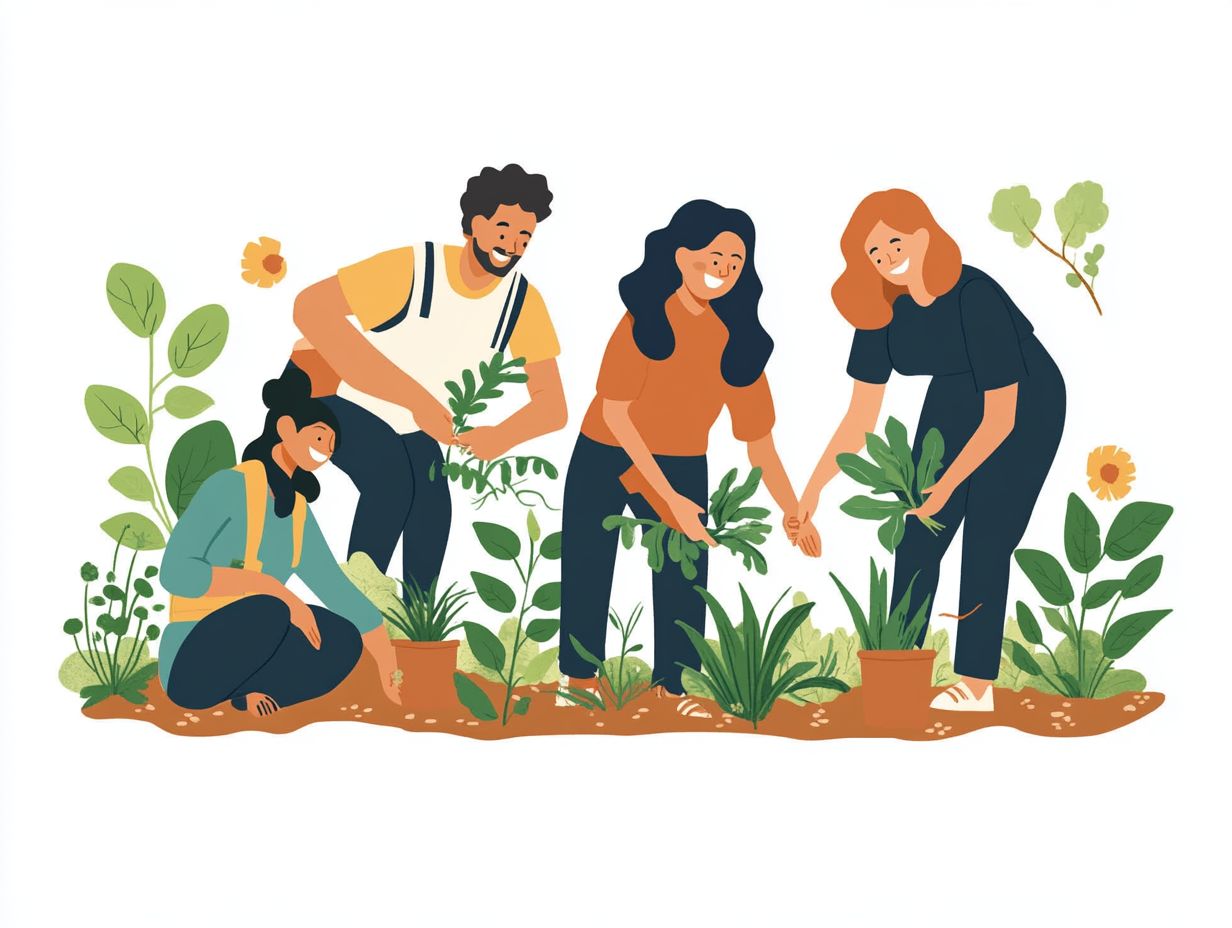How to Cultivate Resilience in Your Community
Resilience is an essential quality that empowers individuals and communities to rebound from challenges, adapt, and ultimately thrive.
This exploration delves into the true essence of resilience and its significance in our fast-paced world. It will examine the various factors that contribute to resilience, both at the personal level and within broader communities.
By grasping and applying effective strategies, you can help cultivate a supportive environment that promotes mental well-being and enhances your collective ability to confront adversity.
Join this journey as we unveil the keys to building resilience within your communities!
Contents
- Key Takeaways:
- What is Resilience and Why Does It Matter?
- Factors that Contribute to Resilience
- Building Resilience in Your Community
- Creating a Supportive Environment
- Dealing with Adversity
- Promoting Mental Health and Well-being
- Frequently Asked Questions
- What does it mean to cultivate resilience in your community?
- Why is it important to cultivate resilience in your community?
- What are some ways to cultivate resilience in your community?
- How can individuals contribute to cultivating resilience in their community?
- What role do local organizations and businesses play in cultivating resilience in a community?
- How can cultivating resilience in a community lead to long-term benefits?
Key Takeaways:

- Resilience is the ability to bounce back from challenges and adversity. It is important for individuals and communities to cultivate resilience in order to thrive and overcome obstacles.
- Factors such as social support, community help, and individual ways to handle stress contribute to resilience. By focusing on these factors, you can strengthen the resilience of your community.
- Strategies for building resilience in your community include promoting social connections, fostering a sense of belonging, and providing resources for mental health support. These efforts can help individuals and the community as a whole to become more resilient.
What is Resilience and Why Does It Matter?
Understanding resilience is essential for dealing with life’s challenges, as it equips you with the skills necessary to adapt to stressors while enhancing your emotional well-being. This mental strength enables you, along with those around you, to grow both personally and collectively.
By cultivating resilience through healthy ways to handle stress, fostering supportive relationships, and participating in community improvement initiatives, you create a foundation for growth. It’s important to see how resilience affects mental health; those who manage grief effectively and maintain a sense of hope are more likely to develop healthier relationships and stronger support networks.
Defining Resilience and its Importance
Resilience is your ability to bounce back swiftly from challenges and difficulties, serving as a cornerstone for mental health and emotional well-being. This vital trait gives you the power to navigate life s inevitable ups and downs with a greater sense of balance.
By nurturing resilience, you not only strengthen your emotional stability but also equip yourself with a toolkit of coping strategies that enable you to tackle stress and adversity more effectively. The true power of resilience lies in its capacity to turn challenges into opportunities for personal growth, imparting invaluable lessons along the way.
Those who embrace this quality often demonstrate enhanced problem-solving skills and a more optimistic outlook, significantly easing the burdens of anxiety and depression. Ultimately, cultivating resilience can pave the way to a more fulfilling and balanced life, enriching your journey as you face whatever comes your way.
Factors that Contribute to Resilience
Resilience is shaped by a multitude of individual and community factors that significantly enhance your ability to navigate life’s challenges and foster personal growth. Understanding these influences can give you the power to build a stronger foundation for facing adversity.
Individual and Community Factors
Individual factors such as your personal experiences, emotional regulation, and ways to handle stress, combined with community elements like support networks and engagement, play a significant role in shaping your resilience.
These components are crucial in determining how you respond to challenges and adversity. For example, if you have a history of overcoming obstacles, you re likely better prepared to tackle future difficulties, drawing on the skills and strategies you’ve learned along the way.
Likewise, community support cultivates a sense of belonging and shared understanding, enabling you to navigate tough times with greater ease. By participating in community initiatives, you can forge relationships that not only enhance your emotional well-being but also provide invaluable camaraderie during crises.
This integrated approach creates a strong safety net, giving you the power to thrive even when facing adversity.
Building Resilience in Your Community

Building resilience within your community is crucial for creating a nurturing environment. This space allows individuals to adeptly navigate grief, stress, and many challenges, highlighting the power of connection in building resilience.
By implementing a range of thoughtful strategies and initiatives, you can foster a space that promotes support and understanding among community members.
Strategies for Cultivating Resilience
Implementing effective strategies for cultivating resilience can greatly enhance both your well-being and that of your community. It s essential to prioritize stress management and adopt healthy coping mechanisms.
One powerful approach is to build robust support networks that offer both emotional and practical assistance during challenging times. These networks can consist of friends, family, or local community groups that share your values and experiences.
Engaging in activities like mindfulness meditation a technique that helps you focus on the present moment and physical exercise can also play a significant role in improving your emotional regulation and relieving stress.
Embracing a growth mindset enables you to see setbacks as valuable opportunities for learning and development. Ultimately, integrating these strategies fosters a resilient culture that benefits everyone, giving you the power to navigate life s uncertainties with greater confidence.
Creating a Supportive Environment
Creating a supportive environment is vital for building resilience. Strong social support and meaningful connections play a crucial role in enhancing community resilience and emotional well-being.
By cultivating these relationships, you contribute to a foundation that uplifts individuals and fortifies the entire community.
Importance of Social Support and Connection
Social support and connection are essential elements of resilience. They enrich your emotional well-being and nurture healthy relationships within your community.
When you re surrounded by a network of supportive friends, family, and colleagues, navigating life s challenges becomes notably easier. This interconnectedness acts as a cushion during tough times, enabling the sharing of experiences and the exchange of valuable advice.
Strong social bonds play a significant role in your emotional stability, helping to alleviate feelings of isolation and anxiety. As these relationships flourish, they not only enhance your self-esteem but also foster a sense of belonging an essential foundation for long-term mental health.
This intricate web of social connections serves as a vital lifeline. It ensures you feel understood, valued, and better equipped to confront adversities with newfound strength.
Dealing with Adversity
Navigating adversity is an inevitable aspect of life. Resilience offers the essential framework you need to tackle challenges with grace.
By employing a range of effective coping strategies, you can face difficulties head-on and emerge stronger on the other side.
Resilience in the Face of Challenges

Resilience plays a pivotal role in how you face challenges. It acts as a buffer against stress while promoting personal growth through effective coping strategies and emotional support.
This inner strength gives you the power to navigate life s hurdles with determination and hope. When adversity strikes, those who possess resilience often tap into a variety of coping mechanisms like problem-solving, mindfulness, or fostering social connections that enable you to adapt and thrive.
Emotional support from friends, family, or support groups enhances this ability. It creates a safety net that encourages you to confront difficulties head-on.
By fostering resilience, you not only prepare yourself for immediate challenges but also establish a solid foundation for long-term emotional well-being and self-improvement.
Promoting Mental Health and Well-being
Promoting mental health and well-being is paramount in cultivating resilience. By addressing mental health concerns within your community, you not only enhance overall emotional well-being but also strengthen the support networks that foster a thriving environment for everyone.
Join us in advocating for mental health and building a stronger community!
Addressing Mental Health Concerns in Your Community
Addressing mental health concerns in your community is essential for fostering resilience and ensuring that individuals receive the emotional support and mental health resources they need.
By prioritizing mental well-being, you can help create an environment where individuals feel safe to share their struggles. This, in turn, reduces stigma and isolation. This open dialogue encourages the use of local mental health resources like counseling services and support groups, empowering residents to seek help without fear.
Integrating local programs like workshops and awareness campaigns can greatly enhance understanding and education surrounding mental health issues. This teamwork not only strengthens connections between people but also facilitates early intervention, taking action quickly before problems worsen.
Frequently Asked Questions
What does it mean to cultivate resilience in your community?
Cultivating resilience in your community means taking intentional actions to build the capacity of individuals and groups to adapt, overcome, and thrive in the face of challenges and adversity, which includes understanding how to develop a resilient mindset.
Why is it important to cultivate resilience in your community?

Cultivating resilience in your community can help increase preparedness and reduce the negative impacts of crises such as natural disasters, economic downturns, and social conflicts. To achieve this, explore how to support a resilient culture at work.
What are some ways to cultivate resilience in your community?
Some ways to cultivate resilience in your community include creating strong social support networks, promoting self-care and mental wellness, and exploring the role of community in resilience, as well as building infrastructure for emergency response and recovery.
How can individuals contribute to cultivating resilience in their community?
Individuals can contribute to cultivating resilience in their community by being proactive in disaster preparedness, volunteering for local initiatives, and understanding the roots of resilience to support and advocate for vulnerable populations.
What role do local organizations and businesses play in cultivating resilience in a community?
Local organizations and businesses can play a crucial role in cultivating resilience in a community by providing resources, services, and support during times of crisis, and promoting community building and mutual aid.
How can cultivating resilience in a community lead to long-term benefits?
Cultivating resilience in a community can lead to long-term benefits such as increased social cohesion and trust, improved mental and physical health, and a more sustainable and adaptable society. Learning how to teach resilience skills to kids is a vital step in fostering these advantages.
Act now to make a difference! Start by connecting with local mental health resources and supporting initiatives in your community.






